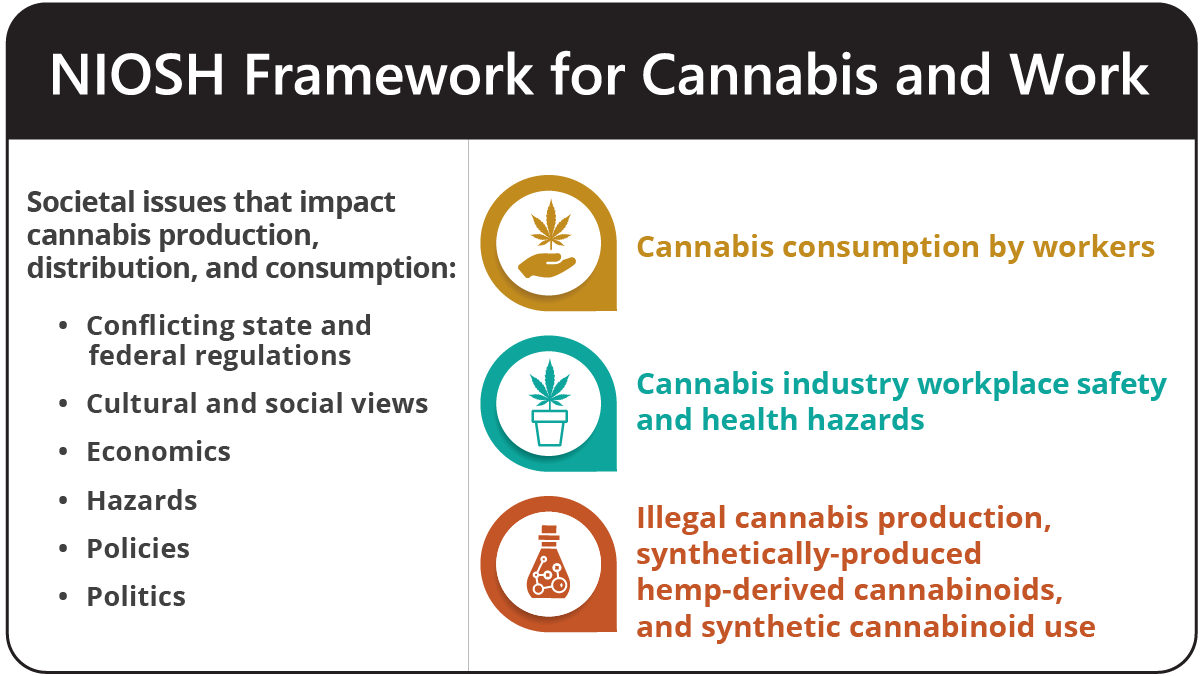What to know
In light of rapidly changing laws and public attitudes, NIOSH has developed a framework for addressing workers' safety, health, and well-being related to cannabis. The framework focuses on guiding questions for future research.

Overview
Cannabis is a genus of flowering plants. It contains compounds called cannabinoids that can have a wide range of effects on the body and brain. Cannabinoids are products found in a cannabis plant (e.g., tetrahydrocannabinol [THC] and cannabidiol [CBD]).
Employers in all industries face challenges addressing issues of impairment among workers who consume cannabis. This is especially true for workers in safety-sensitive positions. As laws, regulations, and attitudes change related to consuming cannabis, workers' health, safety, and well-being must also be addressed. Recognizing these rapidly occurring changes, NIOSH seeks to:
- Better understand cannabis and work-related issues
- Provide advice on workplace policies, programs, and practices
At a glance: Framework
NIOSH has developed a framework for addressing workers' safety, health, and well-being related to cannabis, in light of rapidly changing laws and public attitudes, and includes guiding questions for future research. Learn more about these needs in Cannabis and work: need for more research.

Guiding questions
- What trends and patterns exist for cannabis use by workers?
- What are adverse health consequences of cannabis consumption among workers?
- What is the role of cannabis in:
- medical treatment for workers?
- treating work-related health conditions?
- managing chronic pain from an occupational injury?
- medical treatment for workers?
- Does cannabis consumption impact occupational safety and performance?
- What evidence-based cannabis-related workplace policies exist, including for:
- drug-testing
- impairment detection
- reasonable accommodation of medical cannabis use
- drug-testing
- What is the impact of workers' unintentional cannabis exposure, such as those exposed to second-hand cannabis smoke?
- What are the impacts of cannabis consumption or exposure on occupational driving?
- What is the extent and impact of use or exposures of workers to synthetically-produced hemp-derived cannabinoids or synthetic cannabinoids?
- Examples of synthetically-produced hemp-derived cannabinoids include Delta-8 THC or Delta-10.
- Synthetic cannabinoids are a class of laboratory made substances similar to chemicals found in the cannabis plant. Examples include 'Spice' or 'K2'.
- Examples of synthetically-produced hemp-derived cannabinoids include Delta-8 THC or Delta-10.
